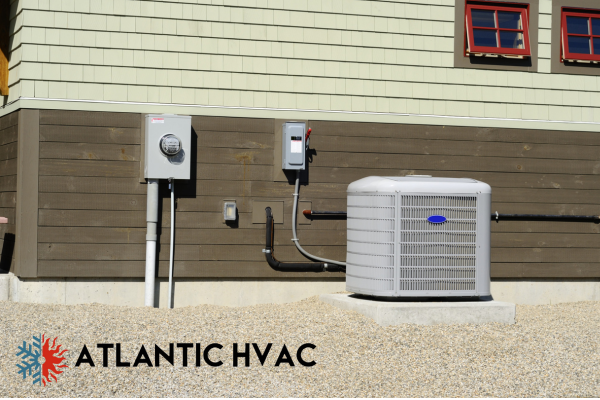HVAC Troubleshooting: Simple Fixes to Try Before Calling a Pro
Your HVAC system plays a crucial role in keeping your home comfortable year-round. However, when it suddenly stops working or doesn’t perform as expected, it can be frustrating. Before calling a professional for repairs, there are several troubleshooting steps you can take to identify and potentially resolve the issue yourself.
7 Troubleshooting Steps to Fix Your HVAC Issues Fast
Here’s what to check before reaching out to Atlantic HVAC for service:
- Check the Thermostat
One of the most common HVAC issues stems from thermostat settings. Ensure that:
- The thermostat is set to the correct mode (heat or cool).
- The temperature setting is appropriate.
- The batteries (if applicable) are not dead.
- The thermostat is properly connected and responsive.
- Inspect the Air Filter
A clogged or dirty air filter can restrict airflow, causing your HVAC system to work harder and potentially shut down. Check your filter and replace it if it appears dirty. Ideally, filters should be changed every 1–3 months for optimal performance.
- Verify Power Supply
If your HVAC system isn’t turning on at all, check:
- The circuit breaker to see if it has tripped.
- The power switch on or near the indoor unit.
- That the outdoor unit (if applicable) is receiving power.
Resetting the breaker or ensuring proper power supply can often resolve simple issues.
- Examine Air Vents and Registers
Blocked or closed air vents can impact airflow and reduce efficiency. Make sure all vents and registers are open and free from obstructions such as furniture, curtains, or debris.
- Inspect the Outdoor Unit
If you have a central air conditioning system or heat pump, check the outdoor unit for:
- Debris buildup, such as leaves or dirt, which can restrict airflow.
- Ice formation, which may indicate a refrigerant issue or poor airflow.
- Unusual noises that could suggest mechanical problems.
- Listen for Unusual Noises
Strange sounds, such as banging, rattling, or squealing, may indicate a problem with belts, motors, or other internal components. While some noises can be addressed by tightening loose parts, others may require professional attention.
- Check for Water Leaks
Puddles of water near your indoor unit can be a sign of a clogged condensate drain line. Try clearing the drain with a wet/dry vacuum or a vinegar solution to remove any blockages.
When to Call Atlantic HVAC
If you’ve gone through these troubleshooting steps and your HVAC system is still not functioning properly, it’s time to call the experts. Whether it’s a refrigerant leak or a failing compressor, the skilled technicians at Atlantic HVAC are ready to diagnose and resolve your problem efficiently. Contact us today to schedule a service appointment and get your HVAC system back in top shape!

